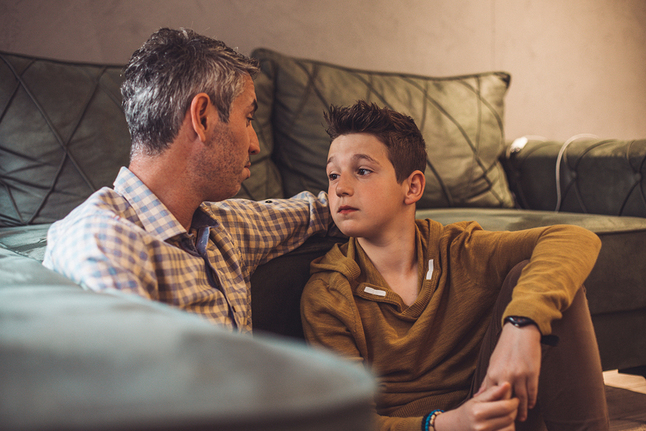
Effects of COVID-19 on Families
Effects of COVID-19 on Families
The novel coronavirus (COVID-19) pandemic is impacting everyone, some more drastically than others. For a number of families, it could mean making big changes in everyday routines due to financial hardships.
For other families, it could mean raised anxiety in children, tension in parenting relationships or general fear. Finding the “new normal” can be challenging as schools and daycares are closed with an end to this phase still unknown.
Jeffrey Strawn, MD, child and adolescent psychiatrist at UC Health and Cincinnati Children’s Hospital and associate professor of psychiatry and pediatrics at the University Of Cincinnati College Of Medicine, answered some questions parents may currently be asking during this time, as they look to troubleshoot growing concerns within their families.
How should parents explain to their children COVID-19 and its effects?
In talking with your children about COVID-19, it’s important to first and foremost ensure that you have an open and supportive environment where children know they can ask questions. However, it’s equally important not to force children to talk about things unless and until they’re ready.
In answering questions, be honest. Children will usually know, or eventually, find out if you’re “making things up.” This can affect their ability to trust you in the future and to be reassured.
For younger children, consider their age and developmental level. Children may ask the same question multiple times either because they are struggling to understand the concept or as a way of seeking reassurance.
Also in answering your children’s questions, it is important not to dismiss their feelings or fears. In listening to these fears, try to acknowledge as well as validate their thoughts and feelings.
How do you explain the importance of social distancing to teenagers?
It’s helpful for teens to understand the rationale for social distancing and how, even if someone doesn’t appear ill, they could still transmit the virus. It is also important for them to understand that social distancing is important in stopping the spread of the virus, not just for their protection.
It is also helpful to allow them to remain in touch with friends and family members by phone, e-mail, Face Time, Google Hangouts, Skype, etc.
What should parents avoid telling their children at this time?
It is important that we remember that kids learn from watching us—their parents, their teachers, their healthcare providers, etc. They will be interested in how we respond to events and how we discuss these events with one another.
It is important to model calmness and to do our best to try to shape their environment. In this regard, we should try to avoid allowing our children to watch too much television or media with disturbing or frightening images.
As noted in recent guidance from the American Academy of Child & Adolescent Psychiatry, “The repetition of such scenes can be disturbing and confusing.”
If COVID-19 forced a family into financial hardship, what is an effective way to explain this to children?
If kids have questions about COVID-19 or about why things in the family might be different because of financial difficulties, answer them honestly but reassuringly, using words and concepts they can understand.
In reassuring our children, it is important that we don’t make unrealistic promises. It may be helpful to let children know that other families have been affected financially and that many people are trying to help.
At what point should people seek professional help?
Children who are preoccupied with questions or concerns about the coronavirus outbreak and are experiencing significant distress should be evaluated.
Other signs that a child or adolescent should be evaluated include the persistence of COVID-19 related fears after the pandemic has been resolved, ongoing sleep disturbances, difficultly in controlling fears about illness or death and being unable to be away from his or her parents (as an adolescent).